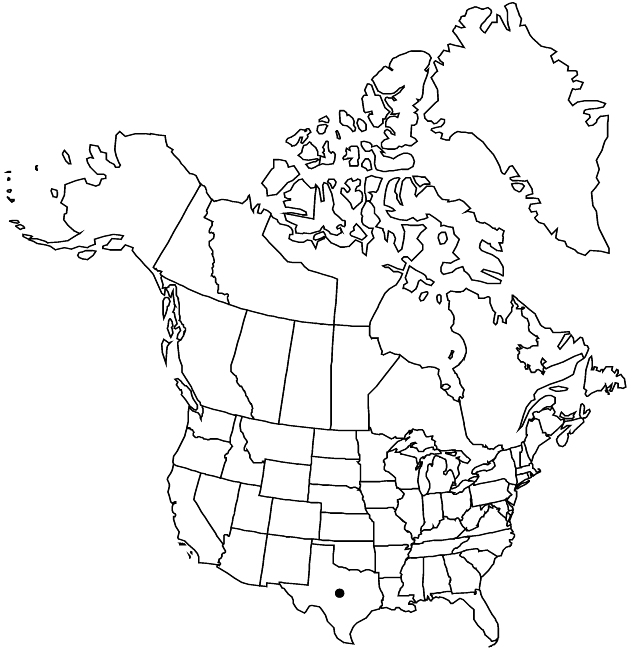Perityle vitreomontana
SouthW. Naturalist 12: 475, fig. 1. 1967.
Plants 3–10 cm (densely leafy); pilose. Leaves: petioles 2–4 mm; blades subovate to ovate-deltate, 5–7 (–10) × 5–8 (–12) mm, margins obtuse-serrate to incised-lobed. Heads usually in corymbiform arrays, rarely borne singly, 6–7 × 3–4 mm. Peduncles 1–3 (–8) mm. Involucres narrowly campanulate. Phyllaries 9–12, linear-lanceolate, 4–5 × 0.8–1.2 mm. Disc-florets 11–16; corollas white, tubes 1 mm, throats tubular, 2.5 mm, lobes 1 mm. Cypselae 1.9–2 mm; pappi of 2–6 bristles 0.5–2 mm plus vestigial nubs between bristles, or of 10–20 bristles 0.1–2 mm. 2n = 34.
Phenology: Flowering spring–fall.
Habitat: Limestone bluffs
Elevation: 1500–2200 m
Discussion
Of conservation concern.
Perityle vitreomontana is known only from in the Glass Mountains of Brewster County. Although P. vitreomontana resembles P. bisetosa, close study of the pappus reveals that it belongs in sect. Pappothrix. Leaf and flower morphology suggest the relationship of P. vitreomontana to P. rupestris var. albiflora.
Selected References
None.
